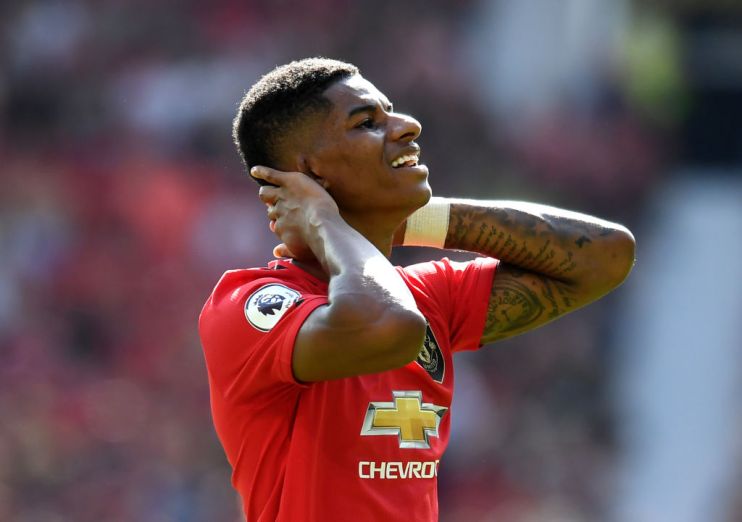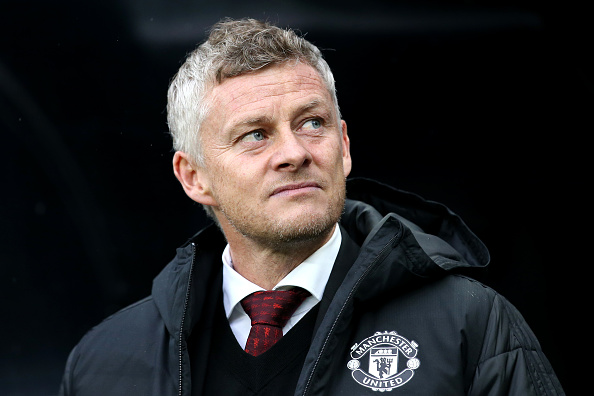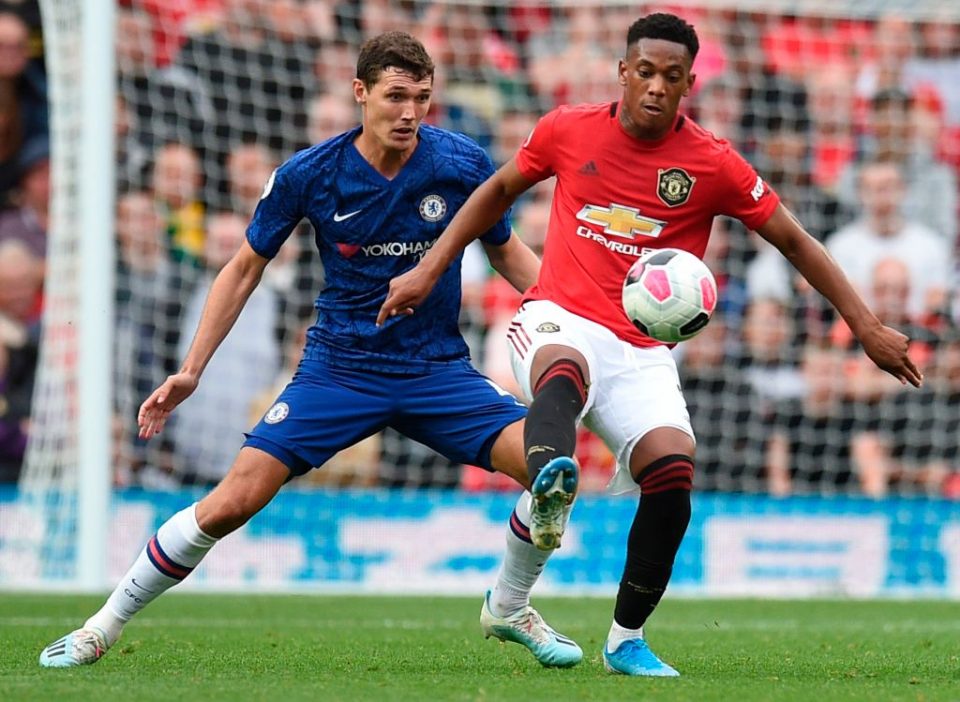Goal drought dragging Manchester United towards relegation zone

Manchester United welcome Liverpool to Old Trafford on Sunday already 15 points adrift of the Premier League leaders.
If there was any lingering debate among United die-hards over a shift in power between England’s two most successful teams last season, that has surely been laid to rest this campaign.
While European champions Liverpool look to make it nine wins from nine games in the league and take a step closer to ending their top-flight trophy drought, arch rivals United could not look further from a title challenge.
Read more: Did Man Utd and Arsenal break each other?
Ole Gunnar Solskjaer’s side currently sit 12th in the league after eight games, are two points above the relegation zone and could feasibly be in it should this weekend’s results go against them.
It is their worst start to a season since 1989 – a year before Liverpool were last crowned champions.
To compound the matter, Solskjaer’s win percentage of 47.5 per cent is the worst of any United manager since Dave Sexton’s spell between 1977 and 1981.
His 29-game record since taking charge is now worse than that which led to Jose Mourinho’s departure almost 12 months ago.
Devoid of creativity
A key reason for the slump has been down to their disappointing performances in the final third.
Only seven Premier League sides have scored fewer goals than United this season and only four teams have a worse shot conversion rate than their 8.2 per cent.
They are not just in the bottom half of the table on points or due to bad luck: they have simply been unable to score with any regularity.
Prominent articles in the media this week have tried to unpick United’s problems in front of goal. While The Athletic analysed their inability to create chances from open play, the Manchester Evening News focused on their lack of prowess from set-pieces.
The unavoidable conclusion is that United are devoid of creativity and goal-scoring ability all over the pitch.

It is a far cry from the revolution Solskjaer appeared to spark on his arrival at United.
And it has also thrust the decision to allow seasoned international forwards Romelu Lukaku and Alexis Sanchez to leave without being replaced under intense scrutiny.
Welsh youngster Daniel James has had a promising start to his Old Trafford career but has been unable to fill the gaping void left by Lukaku’s goals – and nor should he be expected to.
Attacking spark
That pressure has instead largely fallen on Marcus Rashford, in the absence of injured Anthony Martial, and the England forward has struggled to find his shooting boots this season, bar a well taken goal against Bulgaria on Monday night – just his fourth of the campaign.
Solskjaer’s vision of a Ferguson-esque dynasty with a core of exciting British youngsters may have sounded like the long-awaited solution to the club’s crisis, and, along with his legendary status, afforded him a downturn in performance that others did not get.
But in their six years of transitioning into a post-Ferguson era United have never looked further from winning the league.
The 4-0 opening-day win over Chelsea now feels light years away.
While Frank Lampard’s side have since played an exciting brand of attacking football with their young, British players that United must envy, they have mustered just two victories in 10 games since, against Leicester and Astana.

The injury to Martial has certainly blunted their attacking threat and Rashford has looked far less comfortable operating in the centre forward role than on the left wing, where he tends to play for England and had been for United prior to Martial’s thigh strain.
While the news that Paul Pogba and David De Gea will miss Sunday’s match is a huge blow to United, Solskjaer has indicated that Martial may be back in contention.
It seems unlikely he will start after an eight-game absence, but his return and a possible switch back to the wing for Rashford might provide an attacking spark that United have been missing.
Main image credit: Getty